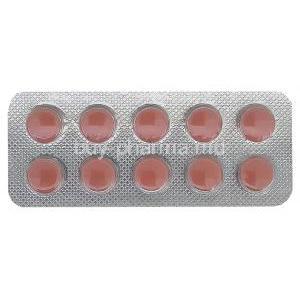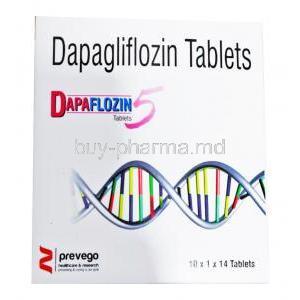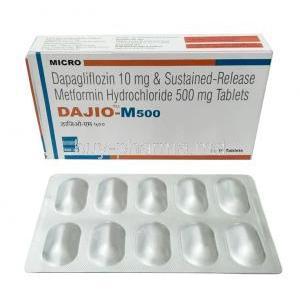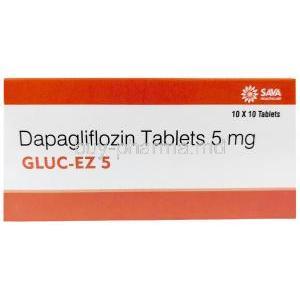Introduction
Overview of Vastarel MR:
Vastarel MR, a pharmacological innovation, serves as a cornerstone in the management of specific cardiovascular conditions. This medication is pivotal for patients dealing with chronic angina pectoris.
Importance in Cardiovascular Treatment:
As a metabolic agent, Vastarel MR is indispensable for its efficacy in enhancing myocardial glucose utilization, thus offering therapeutic benefits in the sphere of cardiovascular disease management.
Composition and Formulation
Active Ingredients:
The primary active ingredient in Vastarel MR is trimetazidine dihydrochloride, which acts specifically on cardiac cells to optimize energy production.
Excipients and Their Roles:
Excipients like microcrystalline cellulose and glycerol behenate play critical roles in the formulation, enhancing the stability and bioavailability of the medication.
Uses of Vastarel MR
Primary Indications:
Vastarel MR is primarily prescribed for the treatment of angina pectoris, a symptom of ischemic heart disease characterized by chest pain.
Benefits in Cardiovascular Health:
Regular intake of Vastarel MR can lead to significant improvement in overall cardiac function, particularly by reducing the frequency of angina attacks and enhancing myocardial energy efficiency.
Mechanism of Action: How Vastarel MR Works
Cellular and Molecular Interactions:
Trimetazidine, by inhibiting fatty acid oxidation and stimulating glucose oxidation, facilitates an optimal energy substrate preference during ischemia.
Impact on Cardiac Metabolism:
This alteration in substrate utilization by the heart muscle enhances the mechanical efficiency of the heart under stress conditions.
Dosage and Administration
Recommended Dosage for Adults:
The standard dosage for adults under treatment with Vastarel MR is 35 mg twice daily, preferably taken during meals for optimal absorption.
Modifications in Dosing Regimen:
Dosage adjustments may be necessary based on the patient's response to treatment and any concurrent medical conditions.
Off-Label Uses of Vastarel MR
Overview of Common Off-Label Applications:
While not officially approved for these uses, Vastarel MR is sometimes prescribed to manage conditions like vestibular disorders and diabetic neuropathy based on its cellular protective properties.
Evidence Supporting Off-Label Use:
Various studies have indicated potential benefits outside its primary indication, though these uses require further clinical validation.
Side Effects of Vastarel MR
Common Side Effects:
Patients may experience dizziness, headache, and gastrointestinal disturbances such as nausea and abdominal pain, which are generally mild and transient.
Rare but Serious Adverse Reactions:
On infrequent occasions, more severe effects like hepatitis and parkinsonian symptoms (such as tremors and rigidity) have been reported, necessitating immediate medical attention.
Special Precautions and Warnings
Contraindications for Use:
Vastarel MR should not be used by patients with known hypersensitivity to trimetazidine or any of the excipients. It is also contraindicated in patients suffering from Parkinson's disease, severe renal impairment, or hepatic disorders.
Drug Interactions and Contraindications:
Vastarel MR may interact with other medications such as those used for the treatment of high blood pressure or other heart conditions. Careful consideration is needed when co-administering with drugs that may also affect metabolic pathways similar to trimetazidine.
Specific Populations
Administration to the Elderly: Adjustments and Considerations
As physiological changes in elderly patients can alter drug pharmacokinetics and pharmacodynamics, Vastarel MR requires careful dosage adjustments. Clinicians should consider reduced dosages to mitigate potential renal clearance issues and heightened sensitivity to the drug’s effects.
- Increased monitoring for adverse reactions such as dizziness or gastrointestinal issues, which may be more pronounced in this demographic.
- Assessment of kidney function before initiation of treatment and periodically thereafter is recommended.
Use in Pregnant Women and Nursing Mothers: Safety Profile and Guidelines
Vastarel MR should be administered to pregnant women or nursing mothers only if the potential benefit justifies the potential risk to the fetus or infant. Limited data on the drug’s impact on human pregnancy and lactation necessitate prudence:
- Discuss potential risks and benefits with healthcare providers.
- Avoid use unless absolutely necessary, under strict medical supervision.
Pediatric Use: Age-Specific Dosage and Precautions
The safety and effectiveness of Vastarel MR in pediatric populations have not been established. Therefore, its use in individuals under 18 is not recommended:
- Should future studies prove its safety and efficacy, age-appropriate dosing guidelines will need to be developed.
- Parents should consult with pediatric cardiologists for alternative treatments that have established pediatric safety profiles.
Handling and Storage
Storage Conditions
Vastarel MR should be stored in a cool, dry place away from direct sunlight to preserve its pharmacological integrity:
- Keep the medication at room temperature, typically between 20°C to 25°C.
- Avoid exposure to moisture and heat as these can degrade the active ingredients.
Handling Precautions to Maintain Efficacy
Proper handling of Vastarel MR is crucial to ensure that its therapeutic potency is maintained:
- Handle with clean, dry hands.
- Ensure that the container is tightly closed after use to prevent contamination.
Overdosage
Symptoms of Overdose
An overdose of Vastarel MR may present with symptoms ranging from nausea and vomiting to severe cardiovascular disturbances such as arrhythmias and hypotension:
- Immediate symptoms might also include dizziness and confusion.
- Long-term effects may involve neurological impairment.
Emergency Management and Antidotes
In the event of an overdose, prompt medical intervention is essential:
- Induce vomiting or administer activated charcoal if ingestion was recent and the patient is conscious.
- Supportive and symptomatic treatment should be initiated based on the severity of the symptoms.
- No specific antidote for Vastarel MR is available, making supportive care crucial.
Important Precautions
Monitoring Parameters
Regular monitoring of liver enzymes, kidney function, and blood counts are advisable for patients on Vastarel MR:
- Periodic assessments can help detect potential adverse effects early, allowing for timely intervention.
Lifestyle and Dietary Considerations
Patients on Vastarel MR should also consider lifestyle and dietary modifications to enhance treatment efficacy and reduce risk factors associated with cardiovascular diseases:
- Incorporate a heart-healthy diet rich in fruits, vegetables, and whole grains.
- Maintain a regular exercise routine as advised by healthcare professionals.
- Avoid smoking and limit alcohol consumption to mitigate cardiovascular risks.




















